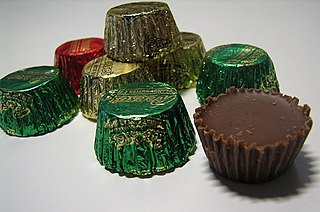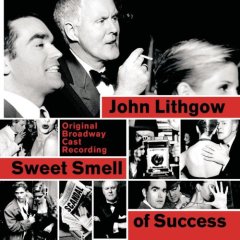Related Research Articles

Marlon Brando Jr. was an American actor and activist. Widely considered one of the greatest actors of the 20th century, he received numerous accolades throughout his career, which spanned six decades, including two Academy Awards, two Golden Globe Awards, one Cannes Film Festival Award, and three British Academy Film Awards. Brando is credited with being one of the first actors to bring the Stanislavski system of acting and method acting to mainstream audiences.

The peanut, also known as the groundnut, goober (US), pindar (US) or monkey nut (UK), is a legume crop grown mainly for its edible seeds. It is widely grown in the tropics and subtropics, important to both small and large commercial producers. It is classified as both a grain legume and, due to its high oil content, an oil crop. World annual production of shelled peanuts was 44 million tonnes in 2016, led by China with 38% of the world total. Atypically among legume crop plants, peanut pods develop underground (geocarpy) rather than above ground. With this characteristic in mind, the botanist Carl Linnaeus gave peanuts the specific epithet hypogaea, which means "under the earth".

Sweet Smell of Success is a 1957 American film noir drama film directed by Alexander Mackendrick, starring Burt Lancaster, Tony Curtis, Susan Harrison, and Martin Milner, and written by Clifford Odets, Ernest Lehman, and Mackendrick from the novelette by Lehman. The shadowy noir cinematography filmed on location in New York City was shot by James Wong Howe. The picture was produced by James Hill of Hecht-Hill-Lancaster Productions and released by United Artists. The supporting cast features Sam Levene, Barbara Nichols, Joe Frisco, Edith Atwater, David White, and Emile Meyer. The musical score was arranged and conducted by Elmer Bernstein and the film also features jazz performances by the Chico Hamilton Quintet. Mary Grant designed the costumes.

A chocolate chip cookie is a drop cookie that features chocolate chips or chocolate morsels as its distinguishing ingredient. Chocolate chip cookies are claimed to have originated in the United States in 1938, when Ruth Graves Wakefield chopped up a Nestlé semi-sweet chocolate bar and added the chopped chocolate to a cookie recipe; however, historical recipes for grated or chopped chocolate cookies exist prior to 1938 by various other authors.

Peanut butter is a food paste or spread made from ground, dry-roasted peanuts. It commonly contains additional ingredients that modify the taste or texture, such as salt, sweeteners, or emulsifiers. Consumed in many countries, it is the most commonly used of the nut butters, a group that also includes cashew butter and almond butter.

Planters Nut & Chocolate Company is an American snack food company now owned by Hormel Foods. Planters is best known for its processed nuts and for the Mr. Peanut icon that symbolizes them. Mr. Peanut was created by grade schooler Antonio Gentile for a 1916 contest to design the company's brand icon. The design was modified by a commercial artist and has continued to change over the years.

Clifford Odets was an American playwright, screenwriter, and actor. In the mid-1930s, he was widely seen as the potential successor to Nobel Prize–winning playwright Eugene O'Neill, as O'Neill began to withdraw from Broadway's commercial pressures and increasing critical backlash. From January 1935, Odets's socially relevant dramas were extremely influential, particularly for the remainder of the Great Depression. His works inspired the next several generations of playwrights, including Arthur Miller, Paddy Chayefsky, Neil Simon, and David Mamet. After the production of his play Clash by Night in the 1941–42 season, Odets focused his energies primarily on film projects, remaining in Hollywood until mid-1948. He returned to New York for five and a half years, during which time he produced three more Broadway plays, only one of which was a success. His prominence was eventually eclipsed by Miller, Tennessee Williams, and, in the early- to mid-1950s, William Inge.

Reese's Pieces are a peanut butter candy manufactured by The Hershey Company; they are oblate spheroid in shape and covered in candy shells that are colored yellow, orange, or brown. They can be purchased in plastic packets, cardboard boxes, or cup-shaped travel containers. The Reese company was founded by H.B. Reese. The H.B. Reese Candy Company was merged with The Hershey Company in 1963.
Ernest Paul Lehman was an American screenwriter and film producer. He was nominated six times for Academy Awards for his screenplays during his career, but did not win. At the 73rd Academy Awards in 2001, he received an Honorary Academy Award in recognition of his achievements and his influential works for the screen. He was the first screenwriter to receive that honor.

Skippy is an American brand of peanut butter spread manufactured in the United States and China. First sold in 1932, Skippy is currently manufactured by Hormel Foods, which bought the brand from Unilever in 2013. It is the best-selling brand of peanut butter in China and second only to the J.M. Smucker Company's Jif brand worldwide.

Peter Pan is an American brand of peanut butter that is marketed by Post Consumer Brands, part of Post Holdings, and is named after the J. M. Barrie character. The product was introduced by Swift & Company in 1920 under the name "E. K. Pond" and renamed in 1928.

A peanut butter cup is a molded chocolate with a peanut butter filling. Peanut butter cups are one of the most popular kinds of candy in America. They can be made at home, but like most candies, they are commonly mass-produced. They may also be available in candy shops, produced by local or regional candymakers.

Reese's Peanut Butter Cups are an American candy by The Hershey Company consisting of a peanut butter cup encased in chocolate. They were created on November 15, 1928, by H. B. Reese, a former dairy farmer and shipping foreman for Milton S. Hershey. Reese left his job with Hershey to start his own candy business. Reese's are a top-selling candy brand worldwide, with more than $2 billion in annual sales generated for The Hershey Company.

Sweet Smell of Success is a musical created by Marvin Hamlisch (music), Craig Carnelia (lyrics), and John Guare (book). The show is based on the 1957 movie of the same name, which in turn was based on the 1955 novelette of the same name by Ernest Lehman. The show tells the story of a powerful newspaper columnist named J. J. Hunsecker who uses his connections to ruin his sister's relationship with a man he deems inappropriate.
Jocelyn Brando was an American actress and writer. She is best known for her role as Katie Bannion in the film noir The Big Heat (1953).

Corn chowder is a chowder soup prepared using corn as a primary ingredient. Basic corn chowder is commonly made of corn, onion, celery, milk or cream, and butter. Additional ingredients sometimes used include potatoes or squash, salt pork, fish, seafood and chicken. In the United States, recipes for corn chowder date to at least as early as 1884. Corn chowder is mass-produced as a canned food in the U.S.

Fool's Gold Loaf is a sandwich made by the Colorado Mine Company, a restaurant in Denver, Colorado. It consists of a single warmed, hollowed-out loaf of bread filled with the contents of one jar of creamy peanut butter, one jar of grape jelly, and 1 pound (450 g) of bacon.

A sno-ball is a confection made with finely shaved ice and flavored sugar syrup. Commonly confused with the snow cone, the ice of a sno-ball is fine and fluffy; while a snow cone's ice is coarse, crunchy, and granular. Moreover, whereas in a snow cone the flavored syrup sinks to the bottom of the cup, in a sno-ball the ice absorbs the syrup.

Barbara "Sandi" Robison, also known as Sandi Peanut Butter, was an American singer who achieved the most success as the lead vocalist for the psychedelic rock band the Peanut Butter Conspiracy. Robison was one of the earliest female vocalists of a rock band, and she was involved in other acts after the group's disbandment, including the musical Hair.
References
- ↑ Book Review, Publishers Weekly, December 16, 1996, p. 48
- ↑ “How Golden Was It?” by Richard Corliss, Time, August 18, 1997, p. 72
- ↑ “New Bio Attempts to Measure Impact of TV Pioneer” by Neal Gabler, TV Guide, December 27, 1996, p. 7
- ↑ Book Review by George Reddick, Talkin’ Broadway, http://www.talkinbroadway.com/bookreviews/femalebrando.html
- ↑ “Critics Notebook: Curtain Call” by Hilton Als, The New Yorker, May 22, 2006, p. 10
- ↑ Book Review, Kirkus Reviews, April 1, 2006
- ↑ “A Chunky History of Peanut Butter” by Jon Michaud, The New Yorker, November 28, 2012, http://www.newyorker.com/books/page-turner/a-chunky-history-of-peanut-butter
- ↑ “Should We Break Up Big Food?” by Tim Sullivan, Harvard Business Review, May 2013, https://hbr.org/2013/05/should-we-break-up-big-food